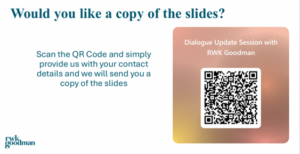We're proud to welcome you to our dialogue members' area
All sessions are Wednesdays 1 – 2pm
Next Session…
4th February 2026
The dialogue
Our fortnightly update session with inspection top tips, research, regs and responses to member queries with John Woodhouse and Brian Smith.
All resources needed for upcoming and past sessions are below.
The session is run on the Zoom platform. There may be YouTube videos.
If you’re not familiar with Zoom you may find the following videos helpful before joining the session. It is reasonably intuitive, so you should not worry. We will also move you into small groups and may ask you to vote on questions – these instructions will appear clearly on your screen.
Being involved – our sessions are pretty relaxed, interactive and work best when there are lots of questions. Please feel free to chip in during a gap, use the ‘raise your hand’ button or put a question in chat at any time. Chat is one of the assets of using Zoom as it makes sure you can get your question in. Our presenters try to avoid reading the chat when they’re speaking, but do look at very regular intervals and should come back to your question. If they’ve missed it please chip in or ‘raise your hand’.
Video and sound – We like to see you! It’s good for the presenter to be able to gauge the reaction of the group and that everyone is engaged with the training. Do check your background prior to going live to make sure there’s nothing that might embarrass you. There is a function in Zoom to hide your background if you wish. Ultimately, if you really cannot face having the video on this is ok. Please mute your sound unless you want to speak so that background noise does not affect everyone else – the presenter may mute everyone if there is interference. Don’t forget to turn it on before speaking!
Doing other work/dealing with other issues/breaks – If you miss key elements of the presentation you may miss an opportunity to intervene to keep a child safe, so you should not be doing other work while the session is running. We recognise that people are working from home and this brings its own challenges. If you need to respond to something please do.
If you need to leave the course please let the presenter know why using a private chat. The subject material can be difficult and it is important to look after yourself. We can point you to helpful sources of support after the session.
Problems accessing the session If you have difficulty accessing the Zoom platform on the day, please contact admin@dialogueltd.co.uk or contact us on 01803 493030. We will do our best to help you join, although we do not offer technical support.
The waiting room will be open 10 minutes prior to the start of the session. Please ensure the name on your Zoom is the name you have registered your membership with.
To start the sessions, please click the launch button on the page above. If you have problems joining check the advice on using Zoom and troubleshooting options above. If you require them, the Meeting ID and Password are:
Meeting ID: 874 6167 8219
Password: 361716
If you have difficulty logging on read our Zoom guidance, above.
Recording sessions – The sessions may be recorded for the purpose of enabling participants to review content and to catch up on a session if it is missed. It will only be accessible to people who hold dialogue membership.
By joining the session you are consenting to the recording for these purposes.
Please note that from 23rd April 2025, all recordings are now available to watch with a subtitle function. Simply hit play on the video and then you will see a small CC in the right hand corner of the video settings – if you press this, the subtitles will now display in the video you are watching.
If you need any help please don’t hesitate to call one of the team on 01803 493030 or email admin@dialogueltd.co.uk and we will be happy to help.
All sessions are Wednesdays 1 – 2pm
Calendar:
7th January 2026 – ‘the dialogue’
our fortnightly update session with inspection top tips, research, regs and responses to member queries.
Watch the recording here
14th January 2026 – bitesize training
Reg40 – Serious Incident webinar with Michelle Nicholson
21st January 2026 – ‘the dialogue’
our fortnightly update session with inspection top tips, research, regs and responses to member queries.
Chris Amys will be joining us to discuss Whistleblowing
Watch the recording here
28th January 2026 – bitesize training
Double Discrimination: Understanding the needs of Black care-experienced young people in the criminal justice system with Dr. Katie Hunter and Rod Weston Bartholomew
Watch the recording here
4th February 2026 – ‘the dialogue’
our fortnightly update session with inspection top tips, research, regs and responses to member queries.
11th February 2026 – bitesize training
Advocacy with Jules Reynolds
18th February 2026 – ‘the dialogue’
our fortnightly update session with inspection top tips, research, regs and responses to member queries.
Helen Humphreys (Ofsted) will be joining us to discuss Updates on Registration Guidance
25th February 2026 – bitesize training
Gaming and Gambling Harm Awareness with Rosie Reid (YGAM)
Resources
Dr. Katie Hunter and Rod Weston-Bartholomew joined us to deliver a presentation on Double Discrimination: Understanding the needs of Black care-experienced young people in the criminal justice system
with
Dr Katie Hunter, is a Senior Lecturer in Criminology at Manchester Metropolitan University, and Rod Weston-Bartholomew, is an experienced senior manager in the children and social care sector (charities and local government).
Katie and Rod discussed the findings from their unique piece of ADR UK Fellowship research using linked data from Ministry of Justice and Department for Education to examine intersections between ethnicity, care experience and youth justice.
This award-winning project was partnered with Barnardo’s, conducted by Listen Up and has been cited in the House of Lords.
The report is a rare and unapologetic capture of what it is like to be Black, and care experienced navigating the criminal justice system. The presentation will lift the experiences, emotions and realities of Black care experienced young people from the pages of the report.
John Woodhouse delivered a session on RM Vacancy Research.
Resources:
Chris Amys (RWK Goodman) joined us to deliver a session on Whistleblowing.
Whistleblowing remains one of the most reputationally high-risk areas for employers and recent tribunal cases continue to show how easily things can go wrong.
In this practical and informative webinar, we explored whistleblowing from an employment law and HR perspective, focusing on what organisations should be doing to manage concerns lawfully, fairly and confidently.
The session covered:
- What legally counts as whistleblowing
- Who is protected under whistleblowing legislation
- Common mistakes employers make when handling whistleblowing concerns
- How to manage whistleblowers
- Practical steps when a disclosure is raised
Whether you are reviewing your whistleblowing procedures, supporting managers, or dealing with a live issue, this session will help you understand the legal framework and apply it confidently in the workplace.
To request a copy of the slides from Chris please use this link.

Chris Amys (RWK Goodman) joined us to deliver a session on Whistleblowing.
Whistleblowing remains one of the most reputationally high-risk areas for employers and recent tribunal cases continue to show how easily things can go wrong.
In this practical and informative webinar, we explored whistleblowing from an employment law and HR perspective, focusing on what organisations should be doing to manage concerns lawfully, fairly and confidently.
The session covered:
- What legally counts as whistleblowing
- Who is protected under whistleblowing legislation
- Common mistakes employers make when handling whistleblowing concerns
- How to manage whistleblowers
- Practical steps when a disclosure is raised
Whether you are reviewing your whistleblowing procedures, supporting managers, or dealing with a live issue, this session will help you understand the legal framework and apply it confidently in the workplace.
To request a copy of the slides from Chris please use this link.

Our fortnightly update session with inspection top tips, research, regs and responses to member queries.
Resources:
- Use of photographs in Regulation 45 reports for children’s homes:
Regulation 45 of The Children’s Homes (England) Regulations 2015 specifies that the registered person must provide a written report of the quality of care review. When sending the report to Ofsted, they’ve asked providers not to include photographs of children, or anyone else that might be able to be identified, in these reports due to DP concerns.
- Internal exclusion – The British Educational Research Journal – First published: 08 October 2025
- Use of reasonable force in schools – Gov – Dept. For Education
- Use of technology to improve medication safety in residential childcare
- Debriefs following restraint
Main findings: ownership of children’s social care providers in England 2025 – GOV.UK
John Woodhouse shared the findings from the RM Vacancy Research Project.
Resources:
![]() Registered Manager Vacancy Research – December 2025
Registered Manager Vacancy Research – December 2025
![]() RM Vacancy Analysis – Recommendations for providers and support from dialogue – December 2025
RM Vacancy Analysis – Recommendations for providers and support from dialogue – December 2025
Chris Freestone joined us to deliver a bitesize session on Good to Outstanding Ofsted in Disability Settings.
The focus on caring for and supporting children and young people with difference/disability has never been more acute. The session will review the ways in which you can develop key threads of practice as you aim for “outstanding” when supporting these young people. As always, the voices and experience of the children and young people will be at the heart of the discussion.
Resources:
![]() Developing outstanding provision – Chris Freestone – December 2025
Developing outstanding provision – Chris Freestone – December 2025
Gemma Nicholas from RWK Goodman joined us to discuss Regulatory Practices – including Ofsted registration.
Resources:

Dougie Stringer joined us to deliver an inspiring and practical webinar, Thriving Into Adulthood. Dougie is a care-experienced social worker as well as the founder of Strive to Thrive Ltd (formerly, The Path To Independence). Blending his powerful personal story with professional insight, this session explored post traumatic growth, resilience, and the tools young people need to navigate the transition to adulthood with confidence, purpose, and hope.
Chris Amys from RWK Goodman joined us to discuss Employment Law and HR within children’s residential care.
Resources:

Recruitment and shadowing/trial shift:
“The prospective employee must be supervised at all times during the shift because they are not yet employed by you, so the relevant regulations do not apply to them. You may introduce them to the children, but they should not have access to children’s detailed personal information.”
Resources:
- Ofcom Children and Parents Media Use and Attitudes Report – 2025
- Gov Legislation – Children Act 1989 – Section 33
- Internet Matters – Understanding the impact of news on children’s wellbeing
- Children’s Home Guidance – A safe and supportive environment
- Manchester City Council v P (Refusal of Restrictions on Mobile Phone) – 27 January 2023
![]() Electronic Monitoring – Jacqui McCann – 22.10.25
Electronic Monitoring – Jacqui McCann – 22.10.25
We run an Online Safety Leads training course for residential homes with SWGfL, a National Online Safety Charity. We are currently taking expressions of interest for the next course.
Please use the link below to find out more: https://dialogueltd.co.uk/online
![]() Therapeutic Parenting Laura Taylor 1st October 2025
Therapeutic Parenting Laura Taylor 1st October 2025
![]() Session recording coming soon…
Session recording coming soon…
![]() Non school AP provision 03.09.25
Non school AP provision 03.09.25
![]() Unable to obtain references 03.09.25
Unable to obtain references 03.09.25
Resources:
- Non-school alternative provision: voluntary national standards
- Arranging Alternative Provision – A Guide for Local Authorities and Schools
- SGN – Keeping Children Safe in Education 2025
- Helping Education Settings Identify and Respond to Concerns
- Shorespace – A safe space for teenagers worried about sexual behaviour
![]() Social Pedagogy Emmanuel Akpan Inwang 16.07.25
Social Pedagogy Emmanuel Akpan Inwang 16.07.25
Links and Resources:
- Lighthouse Pedagogy Trust
- Article on the Josephine Schneider House that Emmanuel mentioned in the session, here’ the link: The Copenhagen house that’s probably the best children’s home in the world
- Query raised during session regarding an Inspector requesting Reg45 reports to be limited – Gov.UK – Regulation 45 review and reports – what you need to know
- dialogue deliver Reg45 training – please use this link to find out more.
- Kingston Course: Graduate Diploma in Residential Work (Children’s) | Kingston University London
Resources and links:
- Ofsted Applications:
Ofsted: Why your registration application may be taking longer than usual
There is already a process for priority applications for a specific child – https://www.gov.uk/guidance/registering-childrens-homes-in-an-emergency
- DBS Hardship Request:
DBS hardship request (before the usual 60-day escalation). Tel 03000 200 190. They will ask for proof such as letters from employer, bank statements etc. Provide email and telephone of employer regarding risk of unemployment, and they agreed to escalate.
- Placement Stability:
1 in 10 children looked after experienced high placement instability (3 or more placements during the year) – 10% – broadly stable with previous years.
Children looked after who were initially detained for child protection reasons had the highest proportion experiencing high placement instability (26%). The proportion of children looked after experiencing high school instability (at least one mid-year school move during the year) in 2024 was 8% – unchanged from 2023 and broadly stable since 2021 (7%).
Children looked after with an Education, Health and Care (EHC) plan were less likely to experience high school instability – 6% in 2024 – compared with those who had some SEN support or with no identified SEN – both 9%. The proportion of children looked after experiencing high social worker instability (3 or more social workers during the year) in 2024 was 27%.
Children looked after aged under 1 year experienced the highest social worker instability – 34%. The proportion of children looked after experiencing high social worker instability decreases as age increases – 24% of children looked after aged 16 or over experienced high social worker instability. 1 in 100 children looked after experienced high instability in all three stability measures (placement, school and social worker) in 2024. There is little variation between different characteristics groups.
Resources and Articles:
- AFFF fire extinguisher phase out – Recap
Under new requirements (see The Facts About Foam in Portable Fire Extinguishers (November 2024)) from the environmental health agency and Health & Safety Executive AFFF foam fire extinguishers are being phased out due to environmental concerns, mainly due to the PFAS chemicals they contain. From July 4th, 2025, the sale of new AFFF extinguishers will be banned, and existing ones should be phased out as part of their service life (at the 5 year discharge testing). Whilst there is no mandate to immediately switch by the deadline it is anticipated by 2030 and I would suggest the home consult with their provider to define and plan a date of when they will switch within the service life of those extinguishers so there is a strategy to do this as soon as feasibly possible.
- Online safety updates:
NSPCC Online safety: expert insight videos
Is surveillance culture fuelling child cyberstalking?
Link to our Online Safety training course
- Child sexual exploitation:
The National Audit on Group-based Child Sexual Exploitaiton and Abuse
12 recommendations, all accepted by Government:
1. Mandatory rape charges extended from under 13s for adults to under 16.
2. National police operation and national inquiry to target local investigations.
3. Disregard any convictions where the government finds victims were criminalised instead of protected.
4. Mandatory collection of ethnicity and nationality data for all suspects of CSE and CCE and improve data collection around victims.
5. Unequivocal and mandatory sharing of information in CSA and CSE.
6. Unique reference numbers for children.
7. Police information systems should be upgraded.
8. CSE investigations should be approached like Serious and Organised Crime.
9. DfE to explore why CP and CiN is showing a decline in CSA and CSE reporting.
10. Research into the drivers for group-based child sexual exploitation, including online offending, cultural factors and the role of the group.
11. Put a stop to ’out of area taxis’ and bring in more rigorous statutory standards.
12. Government should commit to fully resourcing the implementation of these recommendations over multiple years and to tracking their implementation.
Recommended actions:
• Consider how taxi drivers are vetted by education teams and look for full assurance around this – encourage LAs to meet higher standards. Stop the use of out of area taxis without strong reason and validation. Ensure homes’ own taxi use is being managed to the same standard as recruitment.
• Ensure staff familiar with The National Audit on Group-based Child Sexual Exploitaiton and Abuse.
• Consider whether action required in respect of any young people who may fall within this – use of escalation is key.
• Consider whether any young people may be involved in groups perpetrating CSE or CCE.
• Consider whether there are previous referrals that have not been dealt with effectively and need to be resurfaced.
• Consider whether any young people were criminalised instead of protected.
• Reflect on your own referral/identification data on CSE/CSA.
• Ensure training of staff on CSA and CSE (these courses available through dialogue) – consider whether we want to gather together for some leadership. training
![]() Link to presentation from SWGfL (please note this link will expire by 30th April 2025)
Link to presentation from SWGfL (please note this link will expire by 30th April 2025)
![]() Missing People slides Missing Black children research
Missing People slides Missing Black children research
We would encourage you all to read the two reports mentioned into the ethnicity of missing people and the experiences of black missing children and their parents:
- The ethnicity of missing people
- The experiences of black missing children and their parents
Final Experiences of Black missing children Voices report
- Please do leave Josie from Missing People any feedback on slido using this link:
We welcomed Helen Humphreys HC HMI, Ofsted, to discuss all things Regulation 44 and feedback from Ofsted’s Big Listen.
![]() Regulation 44 presentation with Helen Humphreys SC HMI Ofsted March 2025
Regulation 44 presentation with Helen Humphreys SC HMI Ofsted March 2025
We welcomed James Sage from RWK Goodman, to talk about the impact of irregular hours (e.g. sleep ins), on holiday pay and other entitlements following a change in law.
Emmanuel Akpan-Inwang, a Churchill Fellow joined us to discuss the research he undertook into residential care in Europe and returned to integrate these ideas into a children’s home in the UK. The session was full of ideas, reflections and real shared experience of getting things right for our young people.
![]() European Children’s Homes – Emmanuel Akpan-Inwang (LP Trust)
European Children’s Homes – Emmanuel Akpan-Inwang (LP Trust)
![]()
Kevin Murphy from NWG Network delivered a bitesize session around exploitation with a focus on communities.
The session covered:
1) Introduction to Kevin and the NWG Network
2) Child Exploitation Awareness day 2025
3) “Say Something, if you See Something” campaign
4) Bystander Interventions
![]() Kevin Murphy from NWG – Exploitation in Communities and Bystanders
Kevin Murphy from NWG – Exploitation in Communities and Bystanders
![]() Recording – Exploitation in Communities by Kevin Murphy NWG Network
Recording – Exploitation in Communities by Kevin Murphy NWG Network
James Potter from Big Issue Invest presentation:
![]() Big Issue Invest Product Offering – Funding
Big Issue Invest Product Offering – Funding
For any queries you may have, please contact James via email on: james.potter@bigissueinvest.com
We would encourage you all to read the two reports mentioned into the ethnicity of missing people and the experiences of black missing children and their parents:
- The ethnicity of missing people
- The experiences of black missing children and their parents
Final Experiences of Black missing children Voices report
- Please do leave Holly from Missing People any feedback on sli.do using this link:


